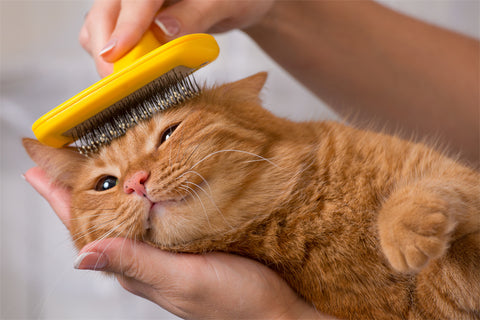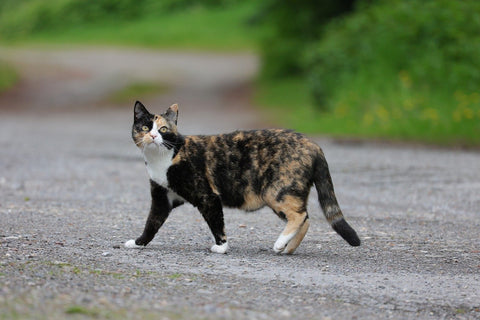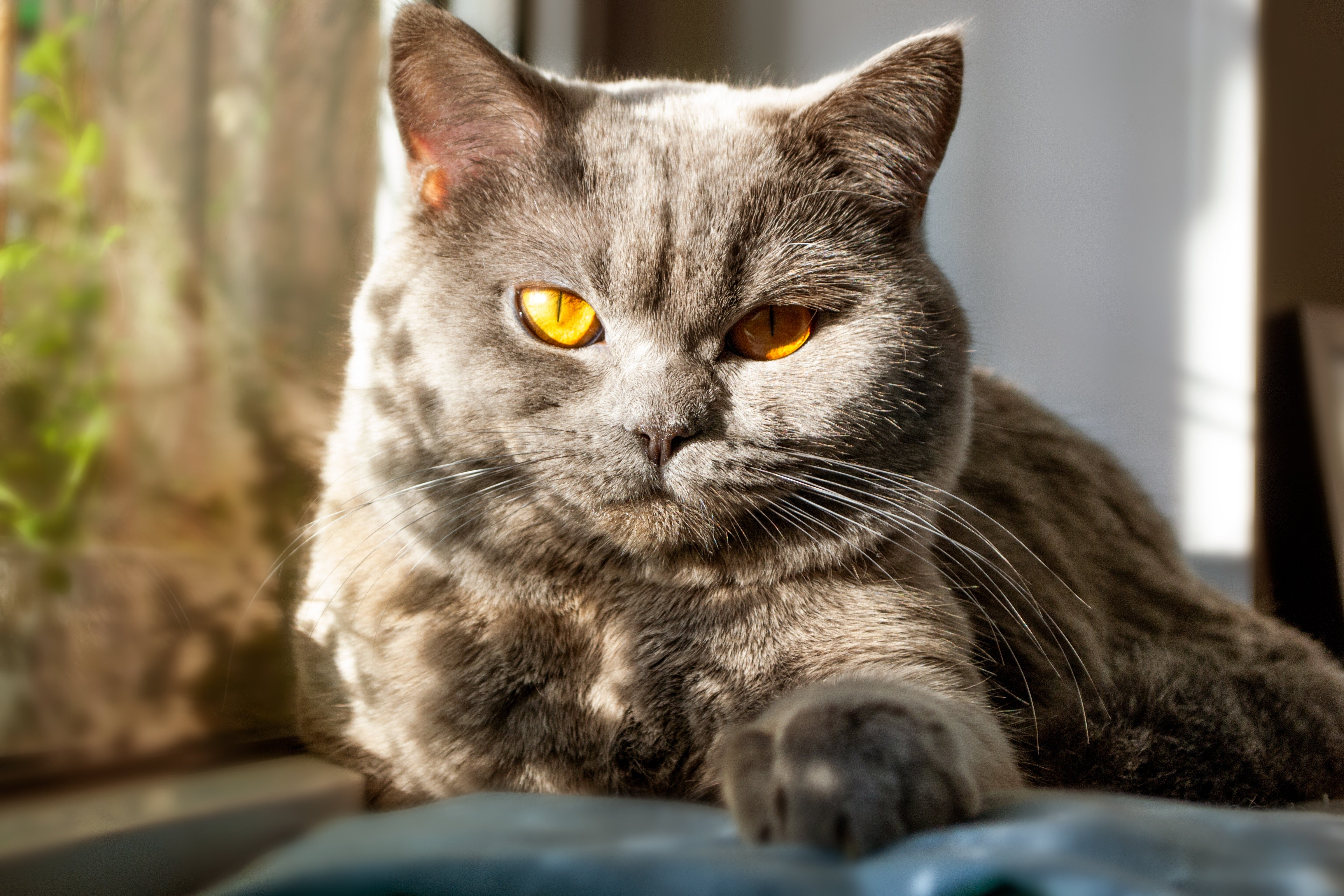Mental Health Needs of Elderly Pets
How to Help Elderly Pets Adapt to The New Environment
Have you ever looked into the wise, soulful eyes of an elderly pet and felt your heart melt? November brings a special opportunity to turn that empathy into action as we celebrate adopt a senior pet month. This article will explore the underrated joy of bringing an older animal into your life. From debunking myths about senior pet adoption to understanding their unique needs and making their golden years the best of their lives, we're about to discover why adopting a senior pet could be the most rewarding journey you embark on. Let's unfold the stories of love, resilience, and companionship that these elder pets have to offer.
 Why Choose Senior Pets
Why Choose Senior Pets
Here are some compelling reasons to consider them:
- Mature Companionship
Senior pets offer a calm, composed companionship that you often won’t find in their younger counterparts. They have grown past the demanding kitten phase, which means less energy spent on training and more on enjoying each other's company. Their personalities are already developed, so you'll have a good understanding of who they are, their likes, dislikes, and quirks right from the start.
- Lower Energy Levels, but Full of Love
While younger pets may require constant attention and stimulation, senior pets are usually content with a more relaxed lifestyle. This makes them ideal companions for those who appreciate a quieter, less hectic home environment. They still enjoy play and exercise but are more likely to match your pace- a leisurely walk or a cozy evening at home.
- Training and Manners
Many senior pets come with a basic understanding of household rules. They are often already house-trained and know fundamental commands. This aspect can make the transition into your home smoother, as you might not need to start from scratch with training.
- Gratitude and Bonding
There's a unique kind of bond that forms with senior pets. They seem to have a deep gratitude and affection for their new home. This bond can be incredibly fulfilling, providing the pet owner with a profound sense of emotional satisfaction
Special Needs of Elderly Pets
Addressing the special needs of elderly pets is crucial when you're considering adopting one. In their golden years, these furry friends often require a bit more attention and care than their younger counterparts, but the love and companionship they offer in return is immeasurable. Let's delve into the various aspects of their special needs:
In the spirit of "Adopt a Senior Pet Month", let's explore how to help elderly pets adjust to new environments, a common scenario when adopting a senior pet.
- Healthcare and Medical Needs
- Regular Veterinary Check-ups: Senior pets are more prone to health issues such as arthritis, dental problems, heart disease, kidney disease, and diminished sight or hearing. Regular vet visits are essential for early detection and management of these conditions.

- Medication Management: Some older pets may require daily medications. It's important to be diligent about dosages and schedules.
- Special Diets: Aging pets often need special diets to manage weight and provide proper nutrition. Their diets may need to include joint supplements, omega fatty acids for coat health, and lower-calorie foods to prevent obesity.
- Mobility and Comfort
- Joint Care: Arthritis is common in senior pets. Providing orthopedic beds can help relieve discomfort, and ramps can aid pets who struggle with stairs.
- Grooming: Older pets may struggle with grooming themselves effectively. Regular brushing and professional grooming can help maintain their coat and skin health.

- Exercise: While they may be less energetic, senior pets still need regular, gentle exercise to maintain their health and mobility. Short walks and light play sessions are beneficial.

- Sensory Changes
- Vision and Hearing: Their vision and hearing may decline as pets age. It's important to keep their living environment consistent and safe to navigate.
- Sensory Enrichment: Keeping their minds active is important. Puzzle toys and scent games can provide mental stimulation that accommodates their changing sensory abilities.
- Comfort and Routine
- Consistent Environment: Elderly pets thrive on routine and can become stressed with major changes. A consistent schedule for feeding, walks, and bedtime can give them a sense of security.
- Warm and Accessible Sleeping Areas: Ensure they have a warm, comfortable, and easily accessible place to rest and sleep.
- Emotional Support and Patience
- Understanding and Patience: Senior pets may adapt more slowly to new environments and situations. It's important to be patient and understanding as they adjust.
- Emotional Bonding: Spending quality time through gentle petting or quiet companionship can strengthen the emotional bond and comfort an elderly pet.
Caring for a senior pet requires a bit more attention to these aspects, but the depth of the bond and the joy of providing a loving home for a pet in their twilight years is a profoundly rewarding experience. Adopt a senior pet month is an excellent time to remind potential pet owners of the joys and responsibilities of caring for an older pet.
Mental Health Needs of Elderly Pets
As we observe adopt a senior pet month", it's crucial to highlight the mental health needs of elderly pets. Older pets often change their cognitive functions, which can affect their behavior and overall well-being.
Cognitive Dysfunction Syndrome (CDS)
Just like humans can develop conditions like Alzheimer's, senior pets can suffer from Cognitive Dysfunction Syndrome. This condition can lead to disorientation, changes in sleep patterns, decreased interaction, and even house soiling. It's important to recognize the signs early and consult with a vet for management strategies.
Anxiety and Stress
Senior pets may become more prone to anxiety and stress. This can be due to a variety of factors, such as diminished senses (hearing or vision loss), pain from medical conditions, or changes in their environment. Maintaining a routine and providing a calm, stable environment can help reduce anxiety.
Mental Stimulation
Keeping their minds active is crucial. Interactive toys, training exercises, and even simple games can provide mental stimulation. Adapting these activities to their physical abilities is essential, ensuring they are not too strenuous.
Social Interaction
Continued social interaction plays a significant role in the mental health of elderly pets. Regular, gentle interaction with family members can help keep their spirits high. If they enjoy the company of other pets, consider supervised social time with calm and friendly animals.
How To Help Elderly Pets Adapt To The New Environment
Introducing an elderly pet to a new environment requires a thoughtful and patient approach. Here’s how you can make this transition as smooth as possible:
Gradual Introduction
Start by introducing them to one room at a time, allowing them to get comfortable with the new smells and sights. This can prevent them from feeling overwhelmed.
Consistent Routine
Elderly pets find comfort in routine. Try to establish a consistent schedule for feeding, walks, and bedtime. This predictability can be very reassuring to a pet in a new environment.
Comfortable Spaces
Create a safe and comfortable area where they can retreat. This space should have their bed, toys, and access to food and water. If they have mobility issues, ensure that this area is easily accessible.
Gentle Familiarization
Introduce them to other family members and pets slowly and under controlled conditions. Watch for signs of stress or discomfort and be ready to give them space if needed.
Patience and Understanding
Understand that it may take time for your senior pet to adjust. They might show signs of confusion or anxiety initially. Be patient and provide lots of gentle reassurance and love.
Conclusion
As we wrap up, remember that adopt a senior pet month is more than just a campaign; it's a chance to make a profound difference in an animal's life. When you open your heart and home to a senior pet, you're not just adopting; you're providing a loving sanctuary for their twilight years. So, let's spread the word and give these deserving companions the loving homes they so richly deserve. After all, in the end, the love of a pet, young or old, is a treasure beyond measure.




